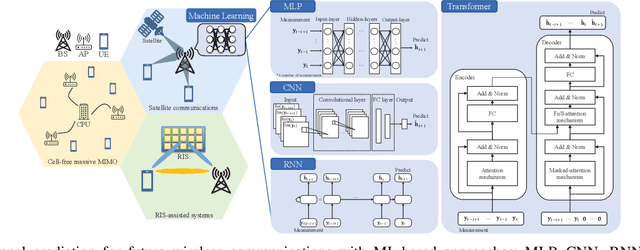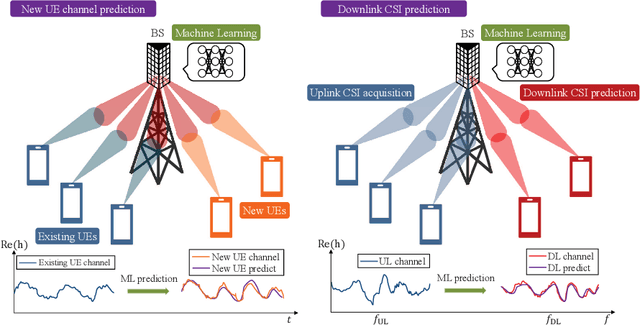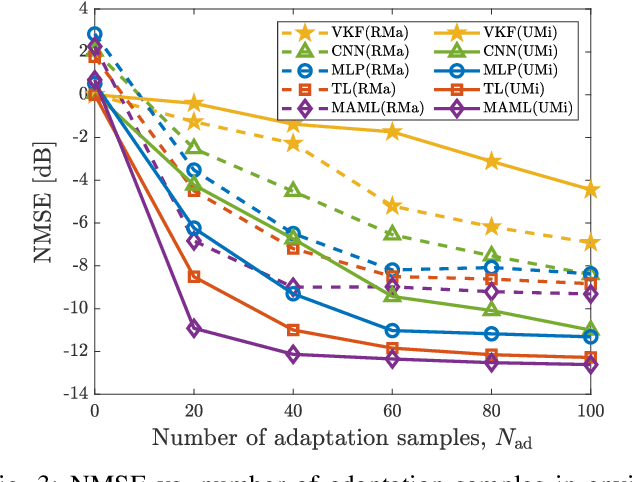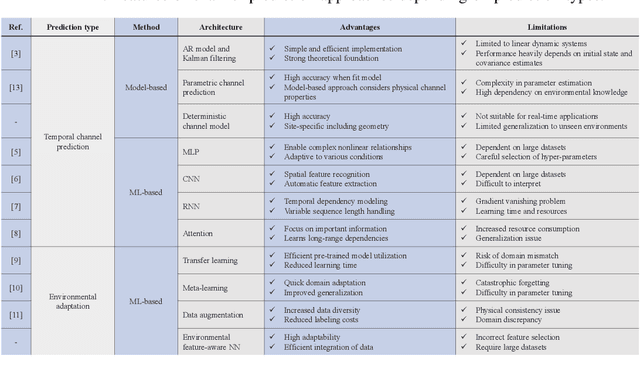Machine Learning for Future Wireless Communications: Channel Prediction Perspectives
Paper and Code
Feb 25, 2025



Precise channel state knowledge is crucial in future wireless communication systems, which drives the need for accurate channel prediction without additional pilot overhead. While machine-learning (ML) methods for channel prediction show potential, existing approaches have limitations in their capability to adapt to environmental changes due to their extensive training requirements. In this paper, we introduce the channel prediction approaches in terms of the temporal channel prediction and the environmental adaptation. Then, we elaborate on the use of the advanced ML-based channel prediction to resolve the issues in traditional ML methods. The numerical results show that the advanced ML-based channel prediction has comparable accuracy with much less training overhead compared to conventional prediction methods. Also, we examine the training process, dataset characteristics, and the impact of source tasks and pre-trained models on channel prediction approaches. Finally, we discuss open challenges and possible future research directions of ML-based channel prediction.
 Add to Chrome
Add to Chrome Add to Firefox
Add to Firefox Add to Edge
Add to Edge